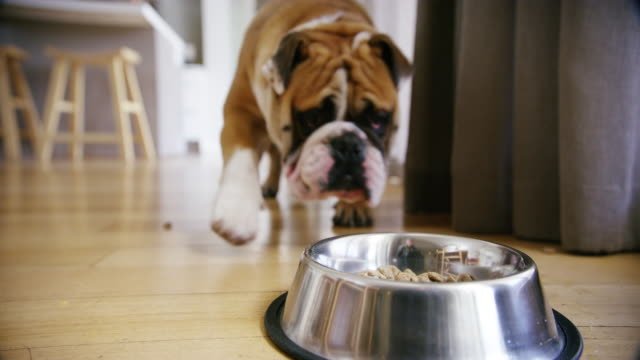What Every Pet Owner Should Know
Table of Contents
Introduction
Hey there, pet lovers! Ever found yourself staring at an aisle full of pet food, utterly baffled about what to choose for your furry, feathered, or scaly friend? You’re not alone. Pet nutrition is a vast and sometimes confusing world, but fear not! We’re diving deep into the essentials of pet nutrition to ensure your companion is getting the nourishment they need. From decoding food labels to understanding the role of supplements, this ultimate guide has got you covered.
The Importance of Proper Nutrition
Imagine your body without the right mix of nutrients. You’d probably feel sluggish, get sick more often, and let’s not even talk about managing weight. Well, the same goes for our pets. Proper nutrition is the cornerstone of their health. A balanced diet boosts the immune system, supports healthy growth, maintains a robust fur or feather coat, ensures proper digestion, and can even extend the lifespan of our beloved companions. Now, who wouldn’t want that?
Understanding Your Pet’s Dietary Needs
Dogs: The Loyal Omnivores
Think your dog is a meat-eater through and through? Think again! While protein is crucial, dogs also benefit from grains, veggies, and fruits—yep, a real smorgasbord. But balance is key. An ideal dog diet includes a mix of high-quality proteins, essential fats, carbohydrates, vitamins, and minerals. And portion size? It’s as important as the food itself. Too little and they’re missing out on essential nutrients; too much and you might have a pudgy pooch on your hands.
Cats: The Fussy Carnivores
Cats are the epitome of carnivorous living; they require a diet high in meat. But it’s not just any meat—they need specific nutrients found in animal products like taurine, arachidonic acid, and vitamin A. These nutrients support everything from their vision to heart health and reproductive capabilities. And hydration? Super important. Since cats aren’t big drinkers, wet food can play a crucial role in keeping them hydrated.
Birds: The Feathered Gourmets
Birds’ diets are as varied as their species. While some birds thrive on a seed-based diet, others need a more diverse menu including pellets, fruits, vegetables, and even protein sources. Knowing what’s best for your specific bird species is crucial because malnutrition is a common issue in pet birds. And remember, fresh water, changed daily, is a must for our avian friends.
Exotic Pets: The Unique Eaters
Exotic pets come with their own set of nutritional guidelines. Rabbits need a diet high in fiber, including hay, fresh veggies, and a limited number of pellets. Guinea pigs, unlike other pets, require a dietary source of Vitamin C. Reptiles? They have a wide range of dietary needs, from strict carnivores (some snakes) to herbivores (like some turtles). Knowing your exotic pet’s natural diet is the first step toward providing proper nutrition.
Reading Pet Food Labels
Ever felt like you need a degree to understand pet food labels? You’re not the only one. Here’s the lowdown: the ingredients are listed in order of weight, so the first few ingredients are what the food mostly consists of. But it’s not just about the ingredients; it’s about the quality of those ingredients. “Meat” is good, but “chicken meal” might be even better because it’s a concentrated source of protein. And those percentages? They tell you how much of the food is protein, fat, and fiber, helping you pick a balanced diet for your pet.
Supplements: Do They Help?
With the booming market for pet supplements, it’s hard to know if your pet actually needs them. While most pets get what they need from their food, there are situations where supplements can be beneficial, especially for pets with specific health issues. Glucosamine for joint health and fatty acids for skin and coat are common examples. But, before you start your pet on any supplement, have a chat with your vet.
Debunking Common Pet Food Myths
- Raw Diets Are Best: Not necessarily. While some pets thrive on raw diets, they’re not suitable for all. Plus, raw diets can pose health risks to both pets and owners due to bacteria in raw meat.
- Grain-Free Equals Healthier: Grains are not inherently bad for pets; in fact, they can be a valuable source of nutrients. Some grain-free diets have been linked to heart issues in dogs.
- By-Products Are Bad: By-products can actually be a source of high-quality protein and nutrients. The key is the quality and source of these by-products.
FAQs
Q: How often should I feed my pet? A: It varies widely by the type of pet, their age, size, and activity level. Generally, adult dogs and cats do well with two meals a day, but puppies and kittens may need more frequent feeding.
Q: Can I give my pet human food? A: While some human foods are safe in small amounts, others can be dangerous. It’s best to stick to pet-specific food and treats.
Q: How do I know if my pet’s diet needs adjusting? A: Keep an eye on their weight, coat condition, energy levels, and stool. Changes in these can signal a need to adjust their diet.
Wrapping Up: A Healthy Pet is a Happy Pet
Nutrition is a key component of your pet’s health and well-being. By understanding their unique dietary needs, reading labels carefully, and consulting with your vet, you can ensure your pet is on the path to a long, healthy, and happy life. Remember, a well-fed pet is a content pet, and there’s nothing we want more for our furry, feathered, and scaly companions.
External Links
Armed with this guide, you’re well on your way to becoming a pet nutrition guru. Your pet’s health and happiness are worth the effort, so dive into the world of pet nutrition and make every meal a step toward a healthier life for your beloved companion.









1 comment